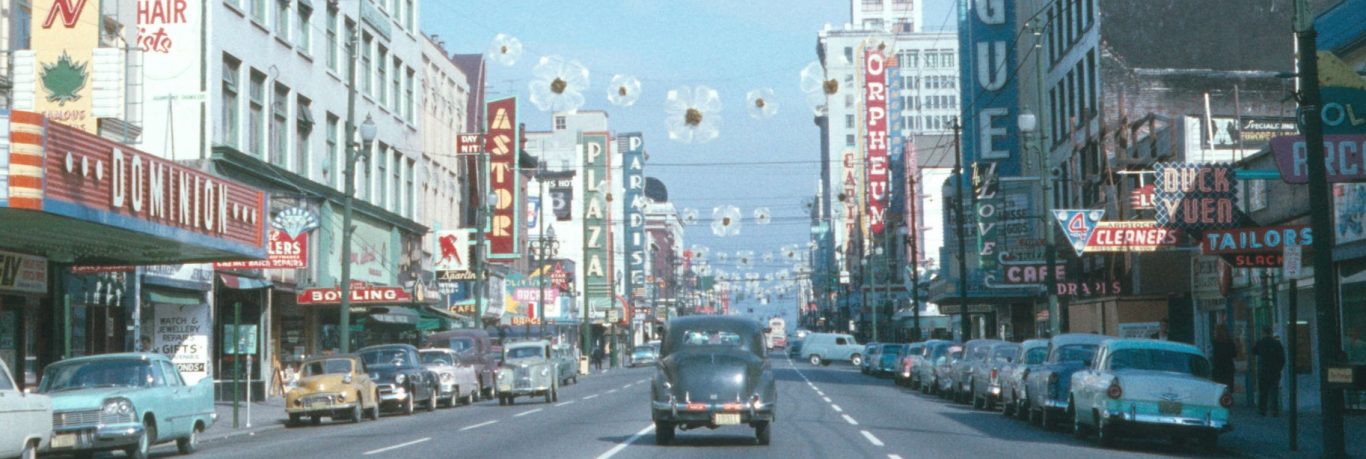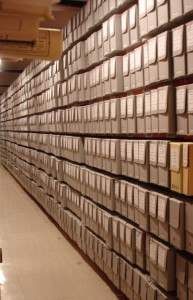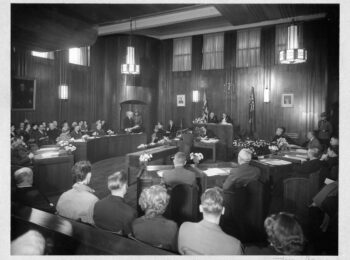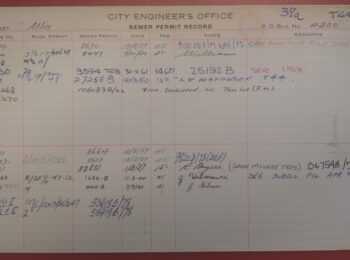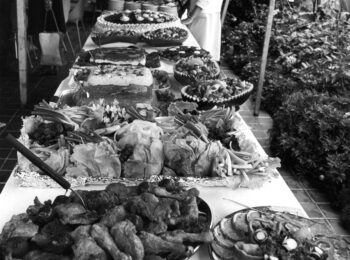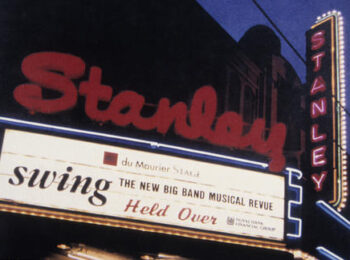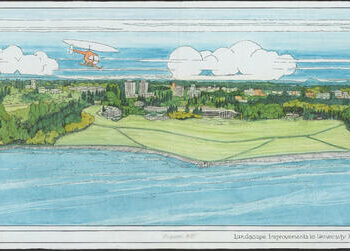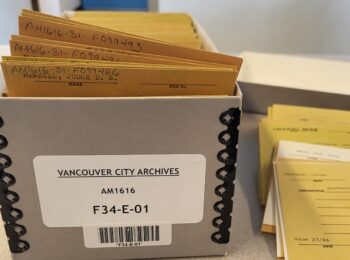Here at the City of Vancouver Archives, we adhere to a Canadian archival principle called “total archives”. This means that we acquire, preserve, and make accessible records from all sectors of society—local government, private industry, cultural institutions, organizations, families, individuals, etc.—and in all formats. Also, because we are the municipal archives for Vancouver, our holdings must relate to some aspect of the history of our city.
The portions of our holdings that come from the City of Vancouver government come to us systematically through the City’s records management program. Those parts that we acquire from the private sector (local businesses, families, associations, etc.) arrive here in a variety of ways, often unexpectedly and sometimes in surprising packages.
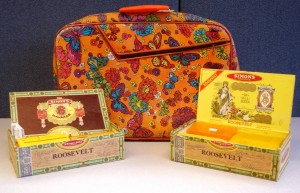
In many cases, people with records to offer will either call or email us asking if we would be interested in what they have. When this happens, we get as much information as possible about the records, such as who or what group created them, what dates the records cover, what types of records there are, what volume and formats of materials we are dealing with, and what condition they might be in.
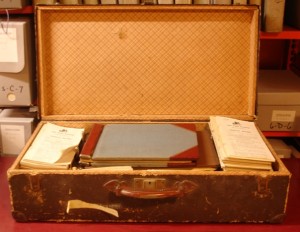
Then, we bring each offer forward at our regular weekly staff meetings for discussion. We try to determine if the records have long-term value, and if so, they are accepted for accession into the holdings. Sometimes, if we don’t have enough information to make the decision, or if the records in question are particularly voluminous, an archivist will pay a visit to look at the materials first.
Sometimes, things arrive at the Archives unannounced, either through the mail, or brought in by donors in person. On very rare occasions, items are even left anonymously, orphan-style, in a box outside our front door. (Needless to say, we don’t encourage this method!)
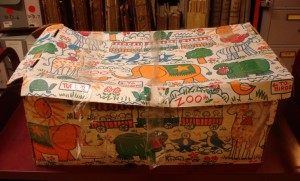
Donors of records fill out a donor agreement, and if it turns out that items don’t meet our acquisitions criteria, they can specify on the form if they would like to have items returned to them. If donors don’t want things returned, we will either dispose of them confidentially, or, if appropriate, we may forward items to other repositories for potential acquisition there. We don’t have an acquisitions budget, but donors can have their donations assessed for a charitable gift tax receipt.
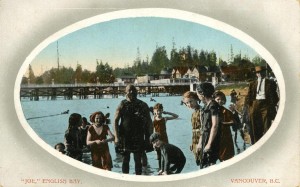
We can’t take in everything that is offered to us; we try to use our limited resources to acquire and preserve original, unique, and unpublished records, for items that are not preserved somewhere else already and that relate to Vancouver in some significant way. Donations may range from a single item, such as a postcard or photograph, to those that require many, many metres of shelf space in our storage. And increasingly, donations are arriving in born-digital format.
No matter what the size or scope, we always appreciate hearing from potential donors, and having the opportunity to expand our City’s documentary heritage with records from the private sector. In this way, the “total archives” approach helps to ensure that Vancouver’s history, beyond the official sphere of City governance and administration, will be preserved and accessible for research and enquiry.
